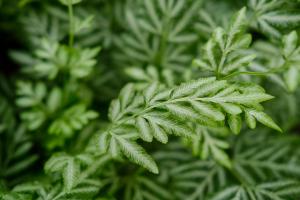Introduction
Oil spills occur when crude oil or refined oil is accidentally released into the waterways or oceans. These spills have a devastating effect on the environment, especially on aquatic plants and animals. In this article, we will discuss how oil spills harm water plants and animals in detail.
Effect on Water Plants
When oil spills happen, the oil floats on the surface of the water and forms a thick layer that blocks sunlight from reaching aquatic plants. The plants rely on sunlight to produce food through photosynthesis, and without it, they start to die. The layer of oil also prevents oxygen from reaching the plants, further contributing to their death. As a result, the entire ecosystem of the waterbody is disrupted, and it takes years for the plants to recover.
Effect on Water Animals
Oil spills have a significant impact on water animals, especially those that live near the surface. The thick layer of oil prevents them from breathing and feeding, which results in suffocation and starvation. The oil can also get into the gills of fish, blocking oxygen exchange and leading to death. Apart from that, oil spills can cause skin irritation, liver and kidney damage, and reproductive problems in animals. The animals that are not killed outright by the oil spill may die later due to the effects of the oil.
Effect on Birds
Oil spills also harm waterbirds that depend on the ocean or waterways for their food. When the oil sticks to the bird's feathers, it affects their ability to fly and thermoregulate. As a result, the bird loses buoyancy, and it becomes difficult for it to swim or dive for food. The oil also enters the bird's body through ingestion or inhalation, leading to poisoning and death. The young birds that are not fully developed may not be able to fend for themselves and die due to starvation.
Long-term Effects
The consequences of an oil spill can last for years, even decades. The oil can remain in the water for a long time, causing continuous harm to the aquatic plants and animals. It can also leave a residue on the shorelines, affecting the soil and vegetation. The long-term effects of oil spills are also psychological. People who rely on the waterways for their livelihoods may suffer financial losses, and the affected communities may lose their cultural identity.
Conclusion
Oil spills have disastrous consequences for water plants and animals. The damage is immediate, and it also has long-term effects on the environment and people. It is crucial to take preventive measures to avoid oil spills and have a proper response plan in case one occurs. By doing so, we can minimize the harm caused to the environment and its inhabitants.

 how many times do yo...
how many times do yo... how many planted tre...
how many planted tre... how many pine trees ...
how many pine trees ... how many pecan trees...
how many pecan trees... how many plants comp...
how many plants comp... how many plants can ...
how many plants can ... how many plants and ...
how many plants and ... how many pepper plan...
how many pepper plan...
































